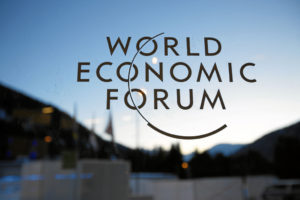 «As technological disruption accelerates in the Fourth Industrial Revolution, how can societies organize themselves better to respond to the potential employment and other distributional effects?»
«As technological disruption accelerates in the Fourth Industrial Revolution, how can societies organize themselves better to respond to the potential employment and other distributional effects?»
This was one of the many questions asked during this year’s Davos World Economic Forum – but the subject at hand has an arguably larger and more and more intricate impact as technology evolves and is diffused. One of the answers offered emphasised the role of education:
«It is important to ensure that people everywhere have access to educational opportunities that provide the skills and knowledge needed to thrive in a digital economy.»
The Forum has also produced the 12th edition of the «Global Risks Report» (2017), which highlights the main risks – economic, social and geopolitical – that the global landscape faces. Among these, emerging technologies hold a highly relevant place. The Report highlights that «the extent to which the benefits are maximized and the risks mitigated will depend on the quality of governance – the rules, norms, standards, incentives, institutions, and other mechanisms that shape the development and deployment of each particular technology.»
More specifically, the twelve new technologies that are expected to have a strong impact on the global landscape are 3D printing, Advanced materials and nanomaterials, Artificial intelligence and robotics, Biotechnologies, Energy capture, storage and transmission, Blockchain and distributed ledger, Geoengineering, Ubiquitous linked sensors, Neurotechnologies, New computing technologies, Space technologies and Virtual and augmented realities.
These technologies have the potential to impact different areas of risk, be they technological, geopolitical, societal, environmental or economic. The loss of jobs is one of the most poignant ones: «One obvious channel through which technological change can lead to wider disruption is the labour market, with incomes pushed down and unemployment pushed up in affected sectors and geographical regions. This in turn can lead to disruptive social instability, in line with the GRPS finding this year that the most important interconnection of global risks is the pairing of unemployment and social instability.»
This thus raises a series of questions regarding the ways in which governments and organisations should respond to this risks and the steps that should be taken in order to mitigate them.
One of the long-term solutions proposed in regards to the specific problem of technological unemployment is rethinking education through measures such as promoting lifelong learning or preparing the pupils for the technological future starting from school.
Sources:
https://www.weforum.org/reports/the-inclusive-growth-and-development-report-2017
http://reports.weforum.org/global-risks-2017/part-1-global-risks-2017/
